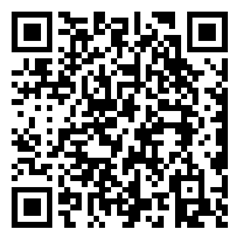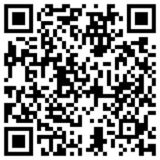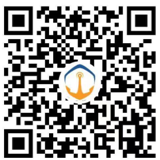AMSA Marine Order 58 (Safe management of vessels) 2020
AMSA Marine Order 58 (Safe management of vessels) 2020
I, Michael Kinley, Chief Executive Officer of the Australian Maritime Safety Authority, make this Order under subsection 342(1) of the Navigation Act 2012.
10 June 2020
Michael Kinley
Division 1 Preliminary
1 Name of Order
This Order is Marine Order 58 (Safe management of vessels) 2020.
1A Commencement
This Order commences on 1 July 2020.
1B Repeal of Marine Order 58 (Safe management of vessels) 2015
Marine Order 58 (Safe management of vessels) 2015 is repealed.
2 Purpose
This Order provides for the safe management and operation of vessels and pollution prevention by giving effect to Chapter IX of SOLAS which requires compliance with the ISM Code.
3 Power
(1) The following provisions of the Navigation Act provide for this Order to be made:
(a) section 98 which provides that regulations may be made about safety certificates;
(b) section 314 which provides that regulations may be made about particular matters relating to certificates;
(c) paragraph 340(1)(a) which provides that the regulations may be made to give effect to SOLAS;
(d) subsection 341(1) which provides for the imposition of penalties for a contravention of a provision of the regulations.
(2) Subsection 339(1) of the Navigation Act provides for regulations to be made prescribing matters required or permitted to be prescribed, or that are necessary or convenient to be prescribed, for carrying out or giving effect to the Act.
(3) Subsection 342(1) of the Navigation Act provides that AMSA may make a Marine Order about matters that can be provided for by regulation.
4 Definitions
In this Order:
Chapter IX means Chapter IX of SOLAS.
document of compliance means:
(a) for a foreign vessel — a document of compliance issued in accordance with paragraph 13.2 of the ISM Code; or
(b) for a regulated Australian vessel — a document of compliance issued in accordance with subsection 12(1).
interim document of compliance means:
(a) for a foreign vessel — an interim document of compliance issued in accordance with paragraph 14.1 of the ISM Code; or
(b) for a regulated Australian vessel — an interim document of compliance issued in accordance with subsection 12(5).
interim safety management certificate means:
(a) for a foreign vessel — an interim safety management certificate issued in accordance with paragraph 14.2 of the ISM Code; or
(b) for a regulated Australian vessel — an interim safety management certificate issued in accordance with subsection 100(1) of the Navigation Act.
ISM Code means the International Safety Management (ISM) Code as defined in Regulation 1 of Chapter IX, as in force from time to time.
ISM Guidelines means the Revised Guidelines on the implementation of the International Safety Management (ISM) Code by Administrations adopted by IMO Resolution A.1118(30) and as amended from time to time.
safety management certificate means:
(a) for a foreign vessel — a safety management certificate issued in accordance with paragraph 13.7 of the ISM Code; or
(b) for a regulated Australian vessel — a safety management certificate issued in accordance with subsection 100(1) of the Navigation Act.
Note 1 For information on obtaining copies of IMO documents mentioned in this Order — see AMSA’s website at http://www.amsa.gov.au. These documents may also be purchased from the IMO — see the IMO website at http://www.imo.org/publications.
Note 2 Some terms used in this Order are defined in Marine Order 1 (Administration) 2013, including:
· IMO
· SOLAS.
Note 3 Some terms used in this Order are defined in the Navigation Act, including:
· foreign vessel
· Government vessel
· issuing body
· owner
· regulated Australian vessel.
Note 4 For delegation of AMSA’s powers under this Order — see the AMSA website Marine Orders link at http://www.amsa.gov.au.
5 Interpretation
(1) A term that is used but is not defined for this Order, and is defined in Chapter IX or the ISM Code, has the meaning given by Chapter IX or the ISM Code.
(2) In this Order, a reference in Chapter IX or the ISM Code to the Administration is taken to mean:
(a) for a regulated Australian vessel — AMSA; or
(b) for a foreign vessel — the government of the country whose flag the vessel is entitled to fly.
6 Application
(1) This Order applies to a regulated Australian vessel to which Chapter IX applies.
Note For safety management system requirements for regulated Australian vessels to which Chapter IX does not apply — see Schedule 2 of Marine Order 31 (SOLAS and non-SOLAS certification) 2019.
(2) Divisions 1 and 2 of this Order apply to a foreign vessel to which Chapter IX applies.
(3) However, this Order only applies to a Government vessel if it is used for a commercial purpose.
7 Exemptions
(1) A person may apply to AMSA, in accordance with the application process set out in Marine Order 1 (Administration) 2013, for an exemption of a vessel, or the owner of a vessel, from a requirement of:
(a) this Order; or
(b) the ISM Code.
(2) AMSA may give an exemption only if satisfied that:
(a) compliance with the requirement or provision would be unnecessary or unreasonable having regard to the vessel, its equipment and intended voyage; and
(b) giving the exemption would not contravene SOLAS or the ISM Code.
Note Marine Order 1 (Administration) 2013 deals with the following matters about exemptions:
· making an application
· seeking further information about an application
· the time allowed for consideration of an application
· imposing conditions on approval of an application
· notification of a decision on an application
· review of decisions.
Division 2 Foreign vessels
8 Certificates and documents required for foreign vessels
(1) The owner of a foreign vessel must have a document of compliance or an interim document of compliance.
(2) A foreign vessel must have a safety management certificate or an interim safety management certificate.
Note It is an offence under sections 106 and 107 of the Navigation Act to take a foreign vessel to sea without a certificate of a specified kind in force for the vessel.
(3) A vessel and the owner of a vessel must comply with Chapter IX, the ISM Code and the ISM Guidelines.
9 Copy of document of compliance or interim document of compliance to be kept on board a foreign vessel
(1) The master of a foreign vessel may take the vessel to sea only if there is on board a copy of a document of compliance or interim document of compliance in effect for the owner of the vessel.
Penalty: 50 penalty units.
(2) An offence against subsection (1) is a strict liability offence.
(3) A person is liable to a civil penalty if the person contravenes subsection (1).
Civil penalty: 50 penalty units.
Division 3 Document of compliance for regulated Australian vessels
10 Requirement for document of compliance
The owner of a regulated Australian vessel must have a document of compliance or an interim document of compliance.
11 Applying for document of compliance
A person may apply to an issuing body for a document of compliance or an interim document of compliance.
12 Issue of document of compliance or interim document of compliance
(1) An issuing body may issue a document of compliance to the owner of a vessel who has agreed to take over all the duties and responsibilities imposed by the ISM Code if the issuing body is satisfied that the safety management system of the owner meets the requirements of the ISM Code and ISM Guidelines for the kind of vessel mentioned in the document of compliance.
(2) However, if a person holds a document of compliance that is in force when the person applies to the issuing body, the criterion is that a renewal verification mentioned in paragraph 4.6 of the ISM Guidelines has been performed.
(3) An issuing body may issue an interim document of compliance in accordance with paragraph 14.1 of the ISM Code and the ISM Guidelines.
(4) A decision by an issuing body not to issue a document of compliance or an interim document of compliance is a reviewable decision for section 17 of Marine Order 1 (Administration) 2013.
13 Conditions on document of compliance
(1) A document of compliance is subject to the following conditions:
(a) it must be endorsed by the issuing body that issued the document of compliance after annual verifications of the kind mentioned in paragraph 13.4 of the ISM Code and paragraph 4.4 of the ISM Guidelines and within the time period mentioned in paragraph 13.4 of the ISM Code; and
(b) the holder of the document of compliance must tell the issuing body that issued the document of compliance, in writing, if the information on the document of compliance is no longer accurate because of a changed circumstance.
(2) A decision by an issuing body not to endorse a document of compliance is a reviewable decision for section 17 of Marine Order 1 (Administration) 2013.
14 Duration of document of compliance
(1) A document of compliance:
(a) comes into force on the day it is issued; and
(b) ceases to be in force on the earliest of the following:
(i) the day determined by the issuing body;
(ii) the day 5 years after it is issued.
(2) An interim document of compliance:
(a) comes into force on the day it is issued; and
(b) ceases to be in force on the earliest of the following:
(i) the day determined by the issuing body;
(ii) the day 12 months after it is issued.
(3) If a renewal verification is completed within 3 months before the expiry date of a document of compliance, the new document of compliance comes into force and ceases to be in force in accordance with paragraph 13.10 of the ISM Code.
(4) If a renewal verification is completed more than 3 months before the expiry date of a document of compliance, the new document of compliance comes into force and ceases to be in force in accordance with paragraph 13.11 of the ISM Code.
15 Variation or revocation of document of compliance or interim document of compliance
(1) An issuing body may vary or revoke a document of compliance or interim document of compliance if:
(a) for a document of compliance — the conditions for the document of compliance mentioned in section 13 are not complied with; or
(b) the issuing body is satisfied that there is evidence of a major non-conformity with the requirements for the document of compliance or interim document of compliance; or
(c) the holder of the document requests a variation or revocation; or
(d) if the information on the document of compliance or interim document of compliance is no longer accurate because of a changed circumstance.
(2) A decision by an issuing body to vary or revoke, or not to vary or revoke a document of compliance or an interim document of compliance is a reviewable decision for section 17 of Marine Order 1 (Administration) 2013.
16 AMSA may require delivery of varied or revoked documents
(1) AMSA may, by notice in writing to the holder of the document, require the holder to give a varied or revoked document of compliance or interim document of compliance to AMSA.
(2) The holder of the document must comply with a notice issued under subsection (1).
Penalty: 50 penalty units.
(3) An offence against subsection (2) is a strict liability offence.
(4) A person is liable to a civil penalty if the person contravenes subsection (2).
Civil penalty: 50 penalty units.
Note A safety management certificate may be revoked if a related document of compliance or interim document of compliance has been revoked or varied — see section 23.
17 Copy of document of compliance or interim document of compliance to be kept on board a regulated Australian vessel
(1) The master of a regulated Australian vessel may take the vessel to sea only if there is on board a copy of a document of compliance or interim document of compliance in effect for the owner of the vessel.
Penalty: 50 penalty units.
(2) An offence against subsection (1) is a strict liability offence.
(3) A person is liable to a civil penalty if the person contravenes subsection (1).
Civil penalty: 50 penalty units.
Division 4 Safety management certificates for regulated Australian vessels
18 Certificates required
For subsection 98(3) of the Navigation Act, (which enables the regulations to provide that specified kinds of vessels are required to have specified safety certificates), a regulated Australian vessel must have a safety management certificate or an interim safety management certificate.
Note It is an offence under sections 103 and 104 of the Navigation Act to take a regulated Australian vessel to sea without a safety certificate of a specified kind in force for the vessel.
19 Applying for safety management certificate or interim safety management certificate
For subsection 99(1) of the Navigation Act, (which enables a person to apply to an issuing body for a safety certificate specified in the regulations), a safety management certificate and an interim safety management certificate are specified.
20 Issue criteria for safety management certificate and interim safety management certificate
(1) For paragraph 100(1)(b) of the Navigation Act, the criteria for the issue of a safety management certificate are that:
(a) a document of compliance valid for the kind of vessel has been issued to the owner of the vessel who has agreed to take over all the duties and responsibilities imposed by the ISM Code; and
(b) the safety management system for the vessel is being applied on the vessel in accordance with the ISM Code and the ISM Guidelines.
(2) However, if a person holds a safety management certificate that is in force when the person applies to the issuing body, the criterion is that a renewal verification mentioned in paragraph 4.6 of the ISM Guidelines has been performed.
(3) For paragraph 100(1)(b) of the Navigation Act, the criteria for the issue of an interim safety management certificate are that the issuing body is satisfied that:
(a) the criteria for issue mentioned in paragraph 14.2 of the ISM Code are satisfied; and
(b) the requirements mentioned in paragraph 14.4 of the ISM Code are met.
Note Under section 313 of the Navigation Act, the following decisions are reviewable decisions: a decision to refuse to issue a safety certificate, a decision to impose a condition on a safety certificate, a decision to vary or refuse to vary a certificate and a decision to revoke a certificate.
21 Conditions on certificates
(1) For paragraph 100(2)(a) of the Navigation Act, a safety management certificate is subject to the following conditions:
(a) it must be endorsed by an issuing body after an intermediate verification, carried out between the second and third anniversaries of the safety management certificate or more frequently if the issuing body considers it necessary, of the kind mentioned in paragraph 4.5 of the ISM Guidelines;
(b) it must be endorsed by the issuing body after any additional verification of the kind mentioned in paragraph 4.7 of the ISM Guidelines;
(c) the owner of the vessel must tell the issuing body, in writing, if the information on the safety management certificate is no longer accurate because of a changed circumstance;
(d) the safety management system for the vessel must be applied on the vessel in accordance with the ISM Code and the ISM Guidelines.
(2) For subsection 100(2) of the Navigation Act, an interim safety management certificate is subject to the condition that, if an additional verification of the kind mentioned in paragraph 4.7 of the ISM Guidelines is carried out, the certificate must be endorsed by the issuing body after the additional verification.
22 Duration of certificates
(1) A safety management certificate:
(a) comes into force on the day it is issued; and
(b) ceases to be in force on the earliest of the following:
(i) the day determined by the issuing body;
(ii) the day the document of compliance for the owner of the vessel who has agreed to take over all the duties and responsibilities imposed by the ISM Code ceases to be in force.
(2) An interim safety management certificate:
(a) comes into force on the day it is issued; and
(b) ceases to be in force on the earlier of:
(i) the day determined by the issuing body; or
(ii) the day 6 months after it is issued.
(3) If a renewal verification is completed within 3 months before the expiry date of a safety management certificate, the new certificate comes into force and ceases to be in force in accordance with paragraph 13.10 of the ISM Code.
(4) If a renewal verification is completed more than 3 months before the expiry date of a safety management certificate, the new certificate comes into force and ceases to be in force in accordance with paragraph 13.11 of the ISM Code.
(5) If a renewal verification is completed after the expiry date of the safety management certificate, a new certificate comes into force and ceases to be in force in accordance with paragraph 13.12 of the ISM Code.
23 Variation or revocation of safety management certificate or interim safety management certificate
For sections 101 and 102 of the Navigation Act, the criteria for variation or revocation of a safety management certificate or an interim safety management certificate for a vessel are:
(a) for a safety management certificate — the conditions mentioned in subsection 21 (1) are not complied with; or
(b) for an interim safety management certificate — the condition mentioned in subsection 21 (2) is not complied with; or
(c) there is evidence of major non-conformity with the requirements for the certificate; or
(d) the document of compliance for the owner of the vessel who has agreed to take over all the duties and responsibilities imposed by the ISM Code:
(i) has not been endorsed under section 13; or
(ii) has expired and not been renewed; or
(iii) has been revoked or varied; or
(e) the interim document of compliance for the owner of the vessel who has agreed to take over all the duties and responsibilities imposed by the ISM Code:
(i) has expired; or
(ii) has been revoked or varied; or
(f) the owner of the vessel has requested a variation or revocation; or
(g) the owner changes; or
(h) the country of registration or the name for the vessel changes; or
(i) for variation of a safety management certificate by extending the term of the certificate — the extension is either:
(i) in accordance with paragraph 13.13 of the ISM Code and is for no more than 5 months; or
(ii) in accordance with paragraph 13.14 of the ISM Code and is for no more than 3 months; or
(j) for variation of an interim safety management certificate by extending the term of the certificate — the extension is in accordance with paragraph 14.3 of the ISM Code and is for no more than 6 months.
Note Section 315 of the Navigation Act provides that AMSA may require a certificate that has been issued for a regulated Australian vessel, and then revoked, to be delivered to AMSA or another specified person. The vessel may be detained until this requirement is complied with.
Chief Executive Officer
RECOMMENDATION









